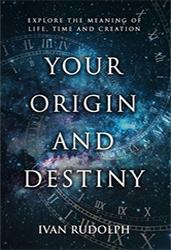SUICIDE – Then What?
(Part 3)
Choosing Your Future
Please seek help if you have suicidal thoughts, or just need to talk to someone.
In Australia: LIFELINE 131114 or BEYOND BLUE 1300 22 4636
Worldwide: https://www.opencounseling.com/suicide-hotlines

Don’t ‘cancel’ your future on earth, perhaps good things are just around the corner
INSIGHT (You may find this article distressing if you have lost someone to suicide.)
Shouldn’t a disturbed or suffering person have the societal right to take his or her own life?
Regardless of our opinions, it appears unwise to do so, especially on looking at the unpleasant experiences of NDErs. It seems that there is a difference between what is allowed or possible because of free will, and what is an acceptable or appropriate choice to make in God’s eyes. Ultimately, God rules the afterlife, and we do well to consider what He wants and not what we as a society think. We don’t make the rules!
Contrary to some popular opinion, suffering is not a sufficient reason in scripture for suicide. Paul suffered greatly for the cause of Christ to the point of despair, as in 2Corinthians 1:8,
“We were under great pressure, far beyond our ability to endure, so that we despaired of life itself”.
Yet Paul did not commit suicide, later dying a martyr’s death in Rome.
Alice Morrison-Mays provides us with a modern example. Her NDE happened in 1952 and she was never free of pain thereafter. She also became wheelchair bound in later life. Nonetheless, she advised time and again that, “There’s still a quality of life available. You just have to be open enough to explore it. You can empower yourself.” Para-Olympians right now illustrate that to us powerfully.
So please hang in there during the tough times, you will never regret doing so in the long run. Learn from the few who have survived jumping from the Golden Gate bridge, which is a famous suicide venue and successful around 98% of the time. David Rosen[i] in 1975 interviewed 7 of the 10 of the tiny handful of known survivors at that time who had jumped. Most important for us perhaps is that each claimed to have had a spiritual experience that had subsequently transformed their lives. Jumping, even had they been successful, would not have ended their lives at all!
Each of them also stated that they no longer wished to commit suicide.
If you hang in there instead of suiciding, things will change. In time, you also will no longer wish to commit suicide, but will begin to embrace life instead. Life will still have challenges, it’s designed to be like that, so that you can grow as a person through overcoming them.
Quotes from “Living Beyond” follow:
Suicide Outcomes
If God has consigned a suicide to an unpleasant NDE, and they have received insights from this before returning, it can be a positive turning point in their life. This has happened in many cases, and researchers are agreed on this positive outcome.
Here are some observations made by the dedicated and thorough researcher PMH Atwater, hoping always for greater insight into her own 3 NDEs:
“Near-death survivors from suicide attempts can and often do return with the same sense of mission that any other experiencer of the phenomenon reports. And that mission is usually to tell other potential victims that suicide is not the answer.
For example, this young man (he asked not to be identified) told me: ‘Since then, suicide has never crossed my mind as a way out. It’s a cop-out to me and not the way to Heaven. I wish you luck in your research and hope my experience will help stop someone from taking his own life. It is a terrible waste.’
Suicide near-death episodes (NDEs) can lay to rest problems and conflicts, explain away confusions, and emphasize the need to remain embodied.
Experiencers usually return with a feeling that suicide solves nothing, and they are notably renewed and refreshed by that feeling, using their near-death event as a source of courage, strength, and inspiration.
But not all suicide scenarios are positive.
Some are negative, and these can be so negative that they upset the individual more than the original problem that precipitated the suicide.
This kind of devastation can be transforming if used as a catalyst to help that person make the kind of changes that comprise constructive, long-term solutions.
Such changes can come from an inner awakening, or from the fear that what was experienced may indeed herald the individual’s final fate if something is not done to turn things around.”
PMH Atwater’s deep and extensive level of research has shown beyond reasonable doubt that living is always better than suiciding!
End Part 3



